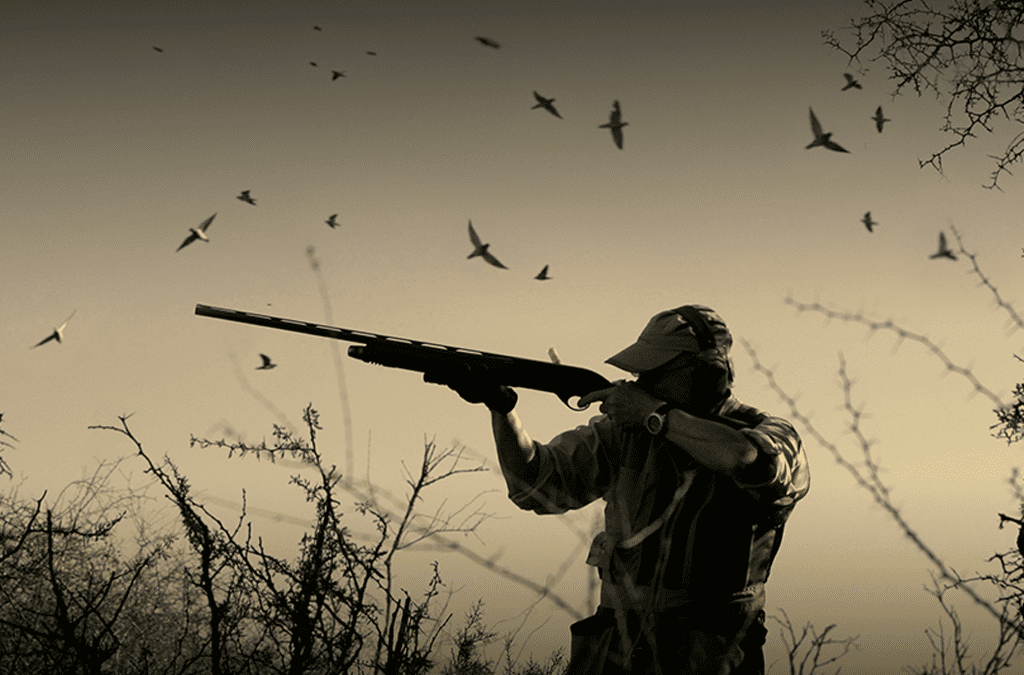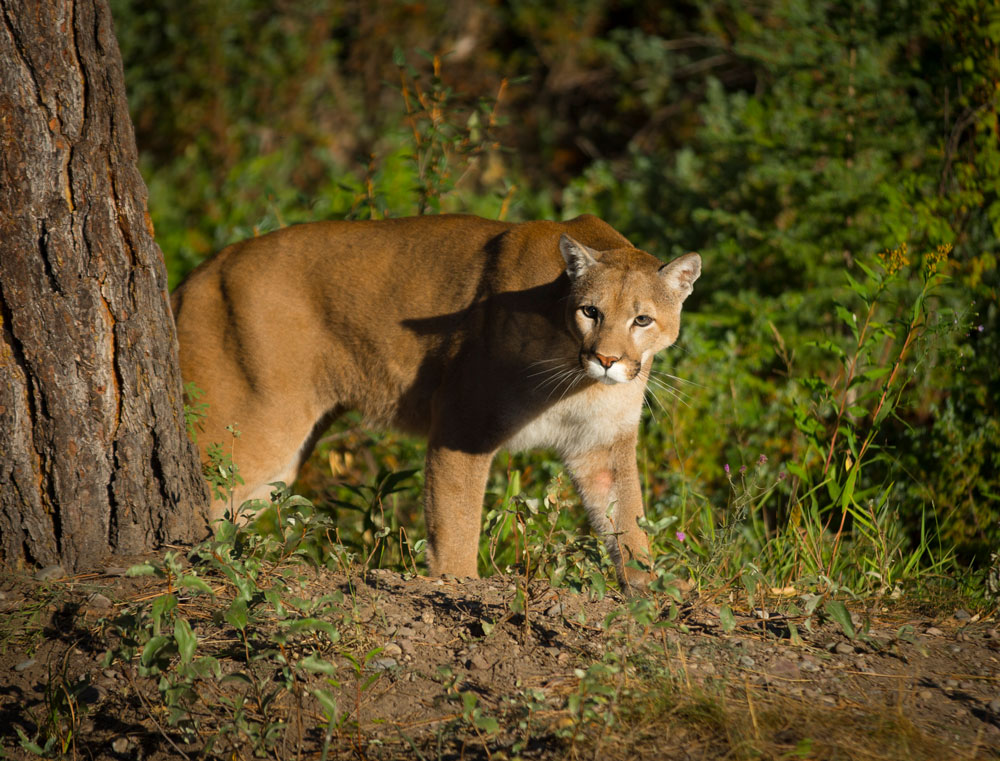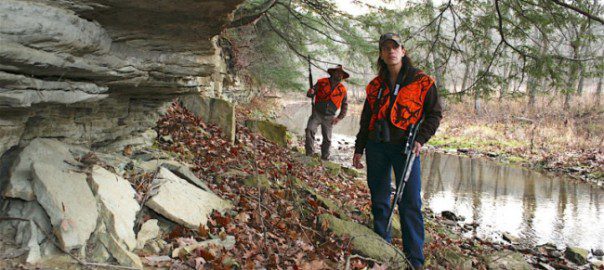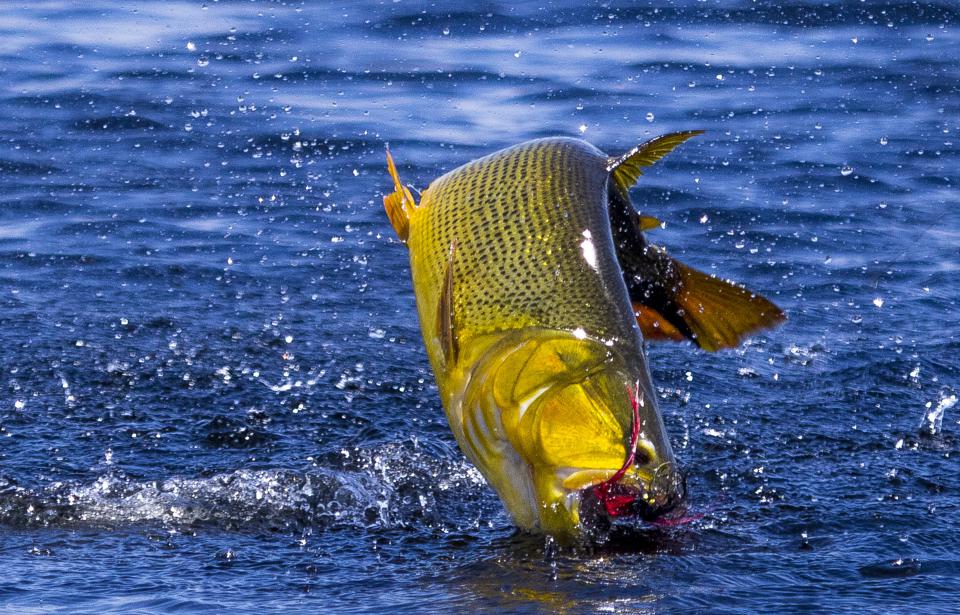Being a hunting guide might seem like a dream job, one we would all like to have, but there is a tremendous gap between the dream and the reality.
There is a famous anecdote, possibly apocryphal, about Fred Astaire’s first screen test for RKO Pictures. Apparently, the talent scout who conducted the test summed up Astaire’s abilities with the words, “Can’t act, can’t sing, slightly bald. Dances a little.”
We all know what became of Fred Astaire, who is still, to this day, one of the greatest dancers who ever lived and is ranked as the fifth Greatest Male Star of All Time by the American Film Institute. But I’ve often wondered what became of that talent scout.
Orvis is one of the rare companies that has endured for more than 160 years of everchanging and frequently turbulent times, and they have done it by maintaining a reputation for excellence. Some of the materials and externals may have changed, and the product line has definitely expanded, but the brand retains its cachet because it offers top quality in its products, whether fly rods or fly-fishing schools, shotguns or shooting schools, binoculars or Barbour coats.
There are only 25 Orvis-endorsed wingshooting lodges in the world, and one of them is Joshua Creek Ranch in the magnificent Texas Hill Country. When you go to an Orvis lodge, you expect the highest standards of service in the lodge and in the field, and clients are asked to review both the lodge and the individual guides. This serves two practical purposes: It gives Orvis a way to ensure their endorsed lodges maintain the level of quality that earned them their spot on the roster; and it gives the lodges a way to ensure their guides are also living up to the Orvis standard.
Being a hunting guide might seem like a dream job, one we would all like to have, but there is a tremendous gap between the dream and the reality. We have all hunted with nice and genial guides who simply couldn’t get the job done, sometimes for reasons beyond their control, sometimes because, nice as they were, they simply weren’t up to the task. And we’ve all hunted with surly misanthropes who could find game in a Walmart parking lot, but who were so unpleasant it almost made us want to sell our guns and take up croquet.
From the guides’ perspective, the gap between dream and reality is equally wide. We have all had the unpleasant experience of being in camp with some arrogant twit who angrily blames the guide for his own poor shooting, who considers the very best none too good for him and who has never mastered subtleties of English such as “please” and “thank you.” You and I can ignore such boors and snigger at them if we wish; the guide cannot.
To be successful, a guide has to have both hunting skills and people skills, and that takes a special kind of person.
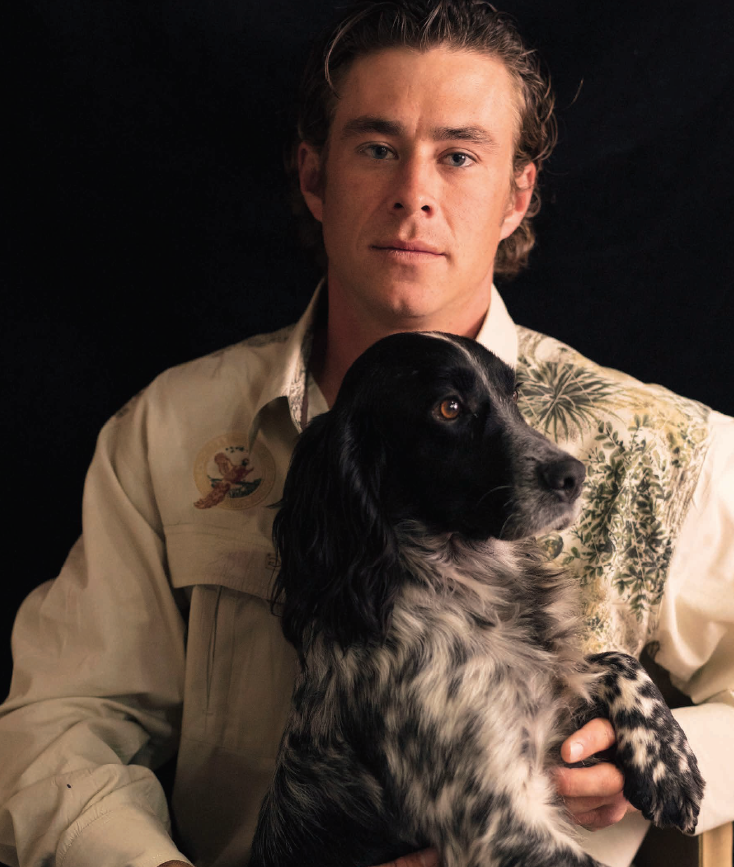
Eric Harrison was the 2017 Orvis Wingshooting Guide of the Year. Eric and Gucci, his English cocker, provide top-flight hunts for clients at Joshua Creek Ranch in Texas. Photo by Terry Allen
Eric Harrison is the Fred Astaire of hunting guides. He grew up in Kentucky, tagging along behind his father and their beagles on rabbit hunts almost as soon as he could walk.
“We hunted a lot of everything—deer, ducks, rabbits, everything. My whole life I’ve been driven to hunt, and all those memories—my first deer, freezing with my dad in a duck blind—all those memories of hunting with him, I cherish that more than anything. For my dad to take the time out to take me hunting over and over…”
There is a moment of silence on the phone. “My dad was my best friend growing up; no one can ever take that from me,” said Eric.
Noting his son’s passion for hunting, Eric’s father told him there wasn’t time enough for school, hunting and competing in sports, and since school was not optional, Eric would have to choose between hunting and athletics. It was no choice. Eric never played any sports. Instead, he nurtured loves and skills he was clearly born with, going out with his father every chance he had, hunting and wingshooting along the Ohio River until he left for Southeastern Illinois College, where he majored in game preserve management.
As soon as he graduated, he had his Fred Astaire moment.
He was hired by a hunting ranch in Texas where they wouldn’t let him guide because they said he didn’t know what he was doing. After six months he was fired by the ranch manager, who told him he wasn’t cut out to be in the hunting business.
Fortunately, the staff at Joshua Creek Ranch had better judgment. They saw a young man who combined hunting skills and knowledge with exceptional people skills, and the result of their judgment is that Eric Harrison was named the 2017 Orvis Wingshooting Guide of the Year.
“I got nominated because of my hunters. I have met hunters here who came to my wedding, and I go to their homes and eat dinner. I have to hunt with whoever comes through the door, but so many of them are like my family, and they treat me like family, and that’s why I like Joshua Creek so much.”
Sporting Classics’ Chuck Wechsler has had the good fortune to hunt at some of the world’s top hunting destinations, rubbing shoulders and shotguns with men who are used to perfection as the norm, and when I asked him about Eric, his response was unequivocal:
“Over my thirty-five years at Sporting Classics, I’ve visited more than my share of bird-hunting preserves and with a slew of different guides, foremost among them Eric Harrison at Joshua Creek. The very best wingshooting guides—and Eric is certainly one of them—have that rare ability to ‘read’ people. They are patient, conversational, good listeners and hard working. It’s like hunting with your best friend. Most have trained their own dogs, and once in the field they know how to bring out the best in their gundogs to ensure a quality hunt. Eric has all of these things going for him. He’s very deserving of the Orvis award.”
Clearly, Eric Harrison has people skills, but what exactly does that mean? Kevin Welborn, Director of Marketing, Sales and Guest Services, summed up the young man’s abilities succinctly:
“Not only does [Eric] have great guiding skills and dog skills, but he is a people person with tremendous patience, the kind of guy who never met a stranger. In fact, he is requested so frequently we have to disappoint a lot of our clients.”
I interviewed Eric for this article, and in the course of the conversation I mentioned I had had a horse wreck that kept me from even firing a shotgun for the past four years, but that I had been doing my therapy religiously and intended to go to my local trap and skeet club and give it a try once more. I also told him I wasn’t sure how I’d do or even if I’d be able to do it.
Without missing a beat, Eric said, “The fact that you’re willing to go out there and try means you can do it.”
Words of wisdom from a people person younger than some of my saddles.
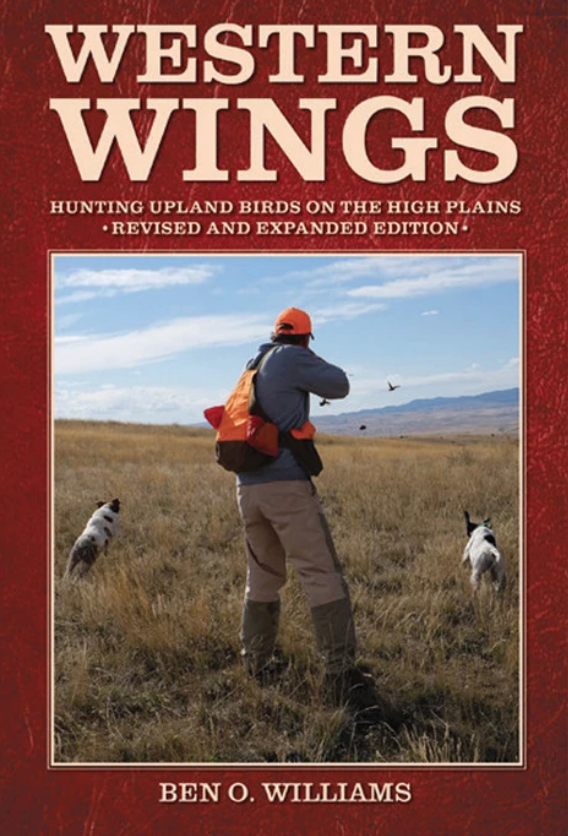 Ben Williams spends well over 250 days each year photographing, hunting, or running dogs on the High Plains. This book is the culmination of his 50+ years spent in the field, not only hunting, but also seeking to understand everything about upland birds and their environment. He discusses literally everything about these wonderful game birds and the country in which they live.
Ben Williams spends well over 250 days each year photographing, hunting, or running dogs on the High Plains. This book is the culmination of his 50+ years spent in the field, not only hunting, but also seeking to understand everything about upland birds and their environment. He discusses literally everything about these wonderful game birds and the country in which they live.
Hungarian partridge, sharp-tailed grouse, sage grouse, prairie chickens, western ruffed grouse, blue grouse, spruce grouse, and pheasants are all covered in more detail than ever before in print: their habits, throughout the year, habitat, mating ritual, identification, what they eat and why, and—most importantly—how to look over a vast section of prairie and identify the habitat within the habitat to locate birds and much, much more. Buy Now

